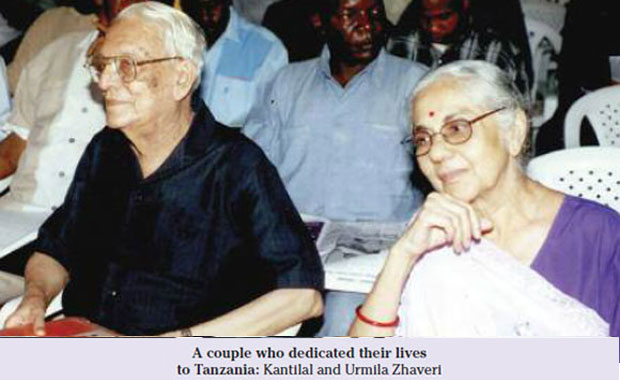After India, Jhaveri Fought For Freedom In Tanzania
To pay tribute to an outstanding freedom fighter, Kantilal Zhaveri, his widow, Urmila, returns to Tanzania from India this week to donate his papers and documents to the national archives and also launch her memoirs of the women's struggle in this East African country, report Kul Bhushan and Sultan Jessa

In the late 19th century, Imperial Germany conquered the region now called Tanzania. Following World War II, it became a British Mandate. After a relatively peaceful struggle, Tanganyika became independent in 1961. Tanganyika and Zanzibar, after a violent revolution, merged in 1964 to form Tanzania. In 1967, Nyerere issued the Arusha Declaration which brought in socialism and self-reliance. Under this Declaration, all private properties and businesses were nationalized.
While in Tanzania, the couple witnessed these dramatic and historic events: the violent revolution in Zanzibar, a mutiny by the army, the mass nationalization of banks and businesses which compelled many Asians to flee the country in search of better lives in other parts of the globe. The Jhaveri family owned two homes but lost them during nationalization. The lawyer never made any effort to recover the seized property.
After he retired from legal practice and active politics due to ill health, the couple decided to move to Delhi in 2009 to be with the rest of family. And to keep herself mentally busy, Urmila started to write her memoirs, 'Dancing with Destiny'. "I felt that very few women have ventured out in this men's domain," she said, "I wanted to write my experiences before it gets lost in the sands of time. I feel that my story is about all of us who made East Africa our home and deserves to be told. This also presents the contribution of the Indians to Tanzania."
She is travelling to Tanzania to present all historical papers and reference materials to the Tanzanian national archives and to launch her book in Dar-es-Salaam.











Comments.